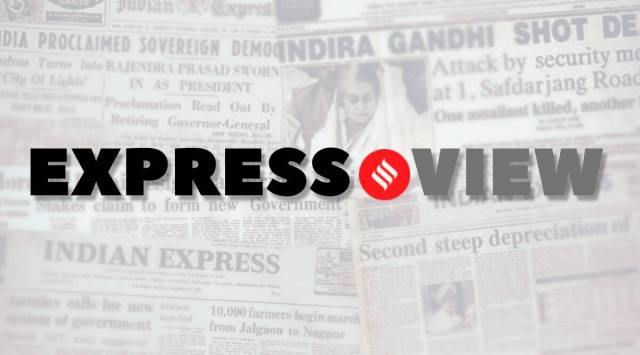
The arrest of Delhi Deputy Chief Minister Manish Sisodia by the CBI Sunday comes in the case of a liquor policy seen to be controversial in the national capital at least since last July. That was when Delhi’s chief secretary submitted a report to the L-G office alleging procedural lapses and the L-G wrote to the Union Home Ministry recommending a CBI inquiry — the month ended with the policy being summarily rolled back and a return to the old excise policy by the Arvind Kejriwal government. Certainly, the CBI must investigate allegations of wrongdoing in, for instance, an increase in the profit margin for wholesalers from 6 per cent to 12 per cent from the old policy to the new. The law must take its course vis a vis Minister Sisodia, as it must for others accused in the case. And yet, herein lies the nub. The high-profile arrest of Sisodia cannot be divorced from the larger political pattern it also seems to be part of. This pattern has been firming up steadily — of central agencies being used to target political opponents. It raises disquieting questions about process becoming punishment and an increasingly apparent convergence between the ruling party’s pet political peeves and action by the CBI and ED. That pattern and this convergence risk undermining public trust in premier agencies even as they send out a chilling signal to the Opposition which is already on the backfoot electorally.
Of course, central agencies like the CBI and ED have always had their strings pulled by whoever is in power. And yet, as an investigation by this paper showed in September last year, the casebook of the CBI, which had infamously earned the label of “caged parrot”, reveals a sharp spike in the number of Opposition politicians and their close relatives under its scanner since 2014. Of the 124 prominent politicians who had been under CBI probe since that year, as many as 118 of them are from the Opposition — a staggering 95 per cent, up from 60 per cent during the UPA years. What is also evident is that the noise around CBI-ED action has become much more nasty and brutish, partisan and political, than before. The ruling party is conspicuously complicit in this. That Sisodia and his party would seek to ratchet up the decibel levels around his arrest was foretold. But the threat-making and loose talk by leaders in the BJP and its government, on Arvind Kejriwal being the “kingpin” and the next target, clouds an already murky scene of arrest.
For the AAP, which emerged from an anti-corruption movement and built its political capital on the promise of transparent governance, the arrest of its No 2 in party and government, following the incarceration of minister Satyendar Jain in a money laundering case last year, is a formidable challenge days ahead of the presentation of the budget. It can’t brush it under the Gautam Adani carpet as some of its leaders have tried to do; it needs to come clean and explain, more convincingly than it has done so far, why it rolled back what it called its reformist policy. At the same time, Sisodia’s arrest — the court sent him to five-day custody Monday — revives questions about due process and political vindictiveness. How the CBI proceeds in this case will test the agency’s credibility. In the run-up to the general elections in 2024, the CBI’s prosecution of political leaders and their alleged contacts will be watched carefully.